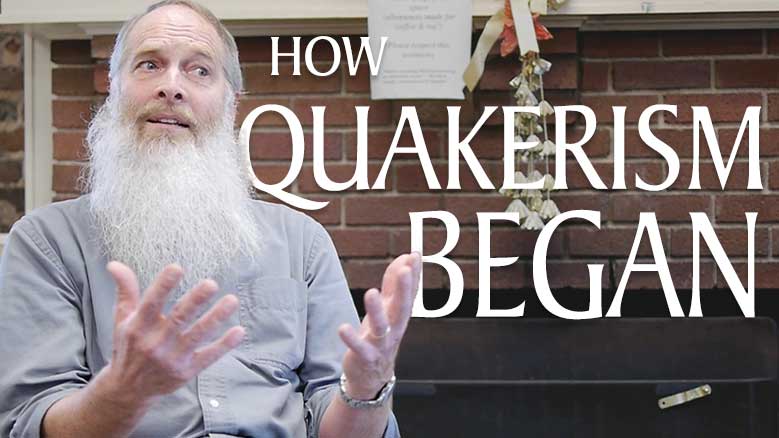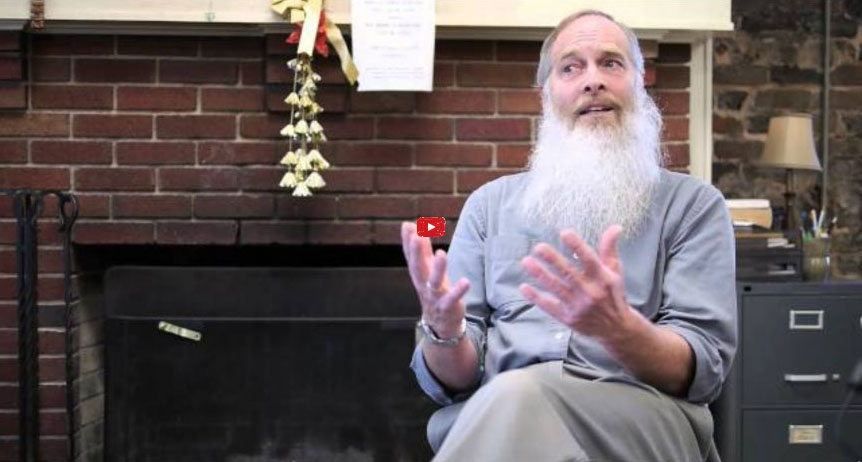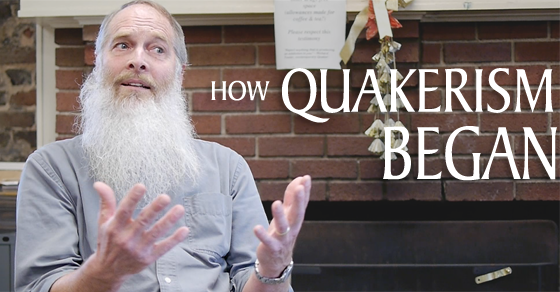Season 1
Date: 3/6/2014
Views: 29,483
Click here to watch the video!
The Quaker way emerged in circumstances like those we face today. Max Carter, a professor at Guilford College, shares the story of George Fox, who went seeking for spiritual answers and found them not in a church but within.
Quakerism started as part of the English Civil War period, 1640s. There were a variety of movements during the Civil War period that were seeking to address some of the disparities in English societies: ecclesiastical, political, economic. Some of those groups were Diggers, Levellers, Muggletonians, Fifth Monarchists, and seekers; some were trying to seek reform within the church (the Puritans), while some had given up on the church as a dead corpse and left to start their own chapels or conventicles. Quakerism emerged out of that chaotic social, political, and religious time.
George Fox was one of the leaders of that movement, but he wasn’t alone. He has become a major figure in understanding the origins of Quakerism. He became tired of what he saw as hypocrisy in the church of his youth, and about the age of 19, he left the church and started wandering about seeking a direct spiritual experience that spoke to his condition. He didn’t find it in any of the outward forms, didn’t find it in any of the clergy of the time, didn’t find it in other authorities.
In 1647 he had an experience in which he heard a voice telling him, “There is one, even Christ Jesus, who can speak to thy condition,” and he goes on to say, “And when I heard it, my heart did leap for joy,” which in contemporary expressions would probably be: what he was seeking outside of himself as authority, he found available to himself within.
He then started sharing that message: that what you’re seeking outside of yourself is available inside of yourself, and you can turn to that inner teacher, that prophet, priest, king, redeemer, Lord within, and be led into salvation and truth.
Quakerism spread from the initial insights of Fox and others who came out of this gumbo of seeking reform in the Church of England in the 1640s and ’50s. Initially by word of mouth, they would share their experience. Fox, for example, would go about the countryside sharing his understanding of the fact that Christ had come to teach the people directly; he would direct them inwardly to God, to Christ as their teacher and priest.
Sometimes he would speak to larger gatherings, but it wasn’t until about 1652 that there were larger numbers of people who came to hear his message. Those folk then shared the message with others. Pretty soon they started going out two-by-two, sharing the gospel message, and people came into convincement.
By the time Fox died in 1691, there were some 50,000 Quakers, so in 40 or 50 years it spread—much of that coming out of that social milieu of protest and the seeking of reform, and it really was one by one by one.
Watch on QuakerSpeak: quakerspeak.com/quakerism-began/






Comments on Friendsjournal.org may be used in the Forum of the print magazine and may be edited for length and clarity.